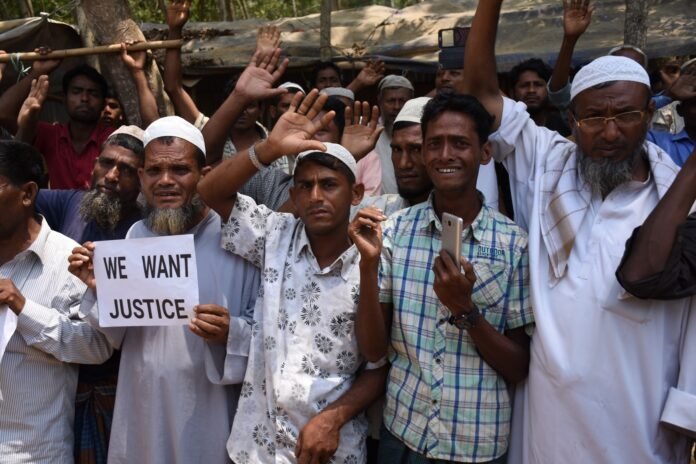Bangladesh’s National Security Intelligence (NSI) is pushing for U.S. help to create a humanitarian corridor that could send Rohingya refugees back home to Myanmar. The agency is walking a tightrope, working with political parties and even some Islamist groups to make this repatriation happen.
A big United Nations conference on the Rohingya Muslims and other minorities in Myanmar kicks off on September 30 at UN headquarters in New York. It’s a key moment to spotlight the ongoing crisis.
In the lead-up, NSI quietly met last month in Cox’s Bazar with leaders from the Arakan Rohingya National Council (ARNC) and the Forcibly Displaced Myanmar National-Representative Committee (FDMN-RC). NSI Director General Major General Abu Mohammad Sarwar Farid tasked the Cox’s Bazar branch head, Shah Jahan, with leading those talks. The goal? Find real representatives who can speak for the Rohingya in Bangladesh’s refugee camps and push for their safe return to Myanmar.
But it’s no easy task. Some potential leaders have ties to drug trafficking rings, while others face accusations of jihadist links. Groups like ARNC and FDMN-RC also get flak for being too cozy with Bangladesh’s government in Dhaka.
For years, NSI focused more on watching the camps for trouble—like instability or outside meddling—than on repatriation. Reports even suggest the agency used the camps to keep tabs on domestic opponents back home.
Things took a dark turn when NSI forced thousands of young Rohingya men back to Myanmar. There, the military junta pushed them to fight the Arakan Army, an ethnic rebel group in the country’s civil war. This move backfired, giving the Arakan Army excuses for abuses that worsened the humanitarian mess. It drove even more refugees across the border into Bangladesh daily.
Now, many Rohingya refugees see the Arakan Army as a greater danger than the junta itself. Violence in the camps has eased up, and armed Rohingya groups like the Arakan Rohingya Salvation Army (ARSA) and the Rohingya Solidarity Organisation (RSO) have shifted gears. NSI is leveraging these groups to pressure the Arakan Army into accepting refugees back.
Just last week, on September 15, the Arakan Army said the junta launched a surprise attack to hold onto key spots like Sittwe and Kyaukphyu in Rakhine State. The fighting includes artillery shells raining down on Arakan Army areas in Ponnagyun and Pauktaw townships, both in the Sittwe District. The civil war shows no signs of letting up.
Bangladesh’s Foreign Ministry stepped up recently with a three-day event in Cox’s Bazar from August 24 to 26. Called the ‘Stakeholders’ Dialogue: Takeaway to the High-Level Conference on the Rohingya Situation,’ it marked the eighth anniversary of the crisis. Nobel winner Muhammad Yunus opened it, urging the world to keep the Rohingya issue front and center. He called for their dignified, safe return and stressed the moral duty to stop the ethnic cleansing of this persecuted minority in Myanmar.
Under former Prime Minister Sheikh Hasina, Bangladesh tried multiple times to get Rohingya refugees repatriated, but Myanmar’s refusal to cooperate, plus regional politics and the refugees’ real fears for their lives, blocked every effort.
Tensions between Bangladesh and Myanmar have heated up lately, and growing U.S. involvement in the region could make things worse. Repatriation talks might stall amid clashing national interests, risking a major breakdown in progress.
Stay informed on all the latest news, real-time breaking news updates, and follow all the important headlines in world News on Latest NewsX. Follow us on social media Facebook, Twitter(X), Gettr and subscribe our Youtube Channel.



